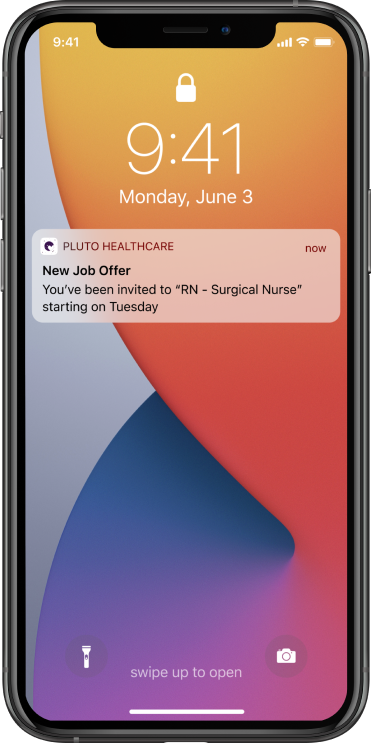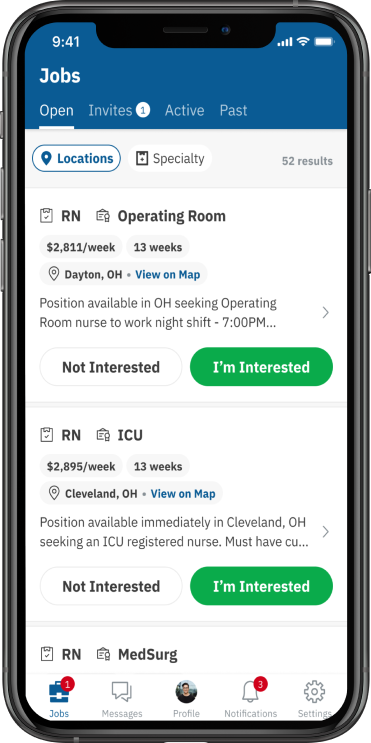

Coming Soon: Pluto Mobile Application
Pluto Healthcare is making travel nursing easier. As part of that, we are unveiling a new mobile app experience for our healthcare professionals in Fall 2023. Our Pluto Healthcare mobile app will provide travel nurses with a convenient, all-in-one experience for locating and applying to jobs, chatting with recruiters, and managing on-assignment time and pay. We look forward to welcoming you on your mobile device soon.







